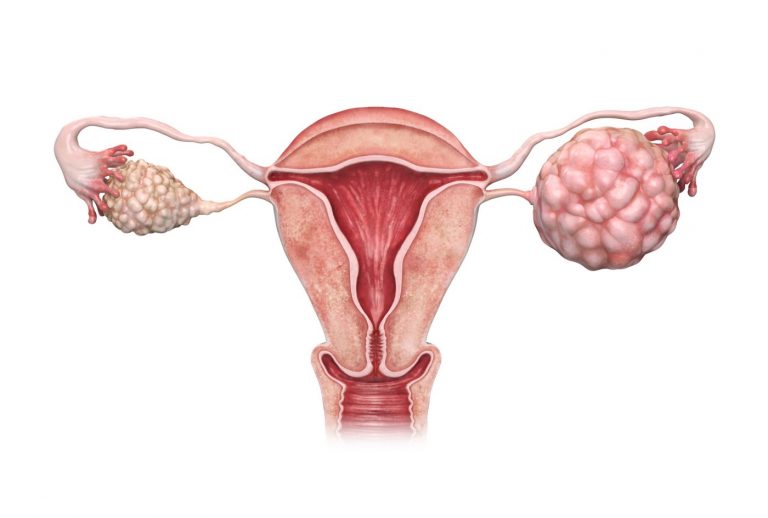
Screening for cancer, and catching it in the earliest possible stages, is a proven method of increasing survival odds for this deadly disease. However, most cancer screening tests are non-existent for patients lacking access to a clinic, even the increasingly reliable genetic screens that identify patients at greatest risk. Until now, screening non-symptomatic patients relied on self-motivated individuals asking their doctors, but studies have shown that people who might have a genetic risk often do not get tested.
In an attempt to bridge the gap for women lacking access but concerned for their health, a collaboration of Stand Up To Cancer researchers co-funded by the Ovarian Cancer Research Alliance and the National Ovarian Cancer Coalition believe they have come up with a possible solution aimed at making genetic testing more accessible.
Between 2016 and 2020 these researchers facilitated clinical trial called MAGENTA (Making GENetic Testing Accessible), engaged nearly 4,000 women from all 50 US states. Their intention was to validate different combinations of remote genetic counseling, the first large, randomized study of its kind to attempt to do so for cancer risk.
The results, which were presented at the American Society of Clinical Oncology’s 2020 annual meeting, showed genetic testing can be adequately provided in a remote setting and that genetic counseling before and after testing can be skipped without causing increased distress to patients undergoing genetic testing from their home.
“The MAGENTA trial results are especially relevant now given the fact that the coronavirus pandemic is necessitating the timely and effective delivery of virtual healthcare,” said Elizabeth Swisher, M.D., co-leader of the Dream Team and director of the Division of Gynecologic Oncology at UW School of Medicine. “There are many benefits to this new design, so I do see genetic testing for medical purposes headed in this direction, regardless of the pandemic.”
All of the women who participated in the trial had a family history of breast or ovarian cancer or had a family member with a known genetic mutation, and each participant was tested for 19 genes associated with inherited cancer risk. Testing was performed with a saliva kit provided by Color Genomics, mailed to each trial participant’s home and returned via standard mail.
Trial participants were split into four groups, with each group watching an educational video on genetic testing for cancer risk before completing their test. In the control group, women attended a mandatory genetic counseling by phone before and after testing, and the other three groups of women skipped the pre-test counseling, the post-test counseling, or both, respectively. In all four groups, anyone with a positive test result had genetic counseling delivered by a telephone appointment.
Results from the three-month follow-up survey showed that electronic genetic education methods were effective and skipping personalized counseling did not increase a patients’ distress. Furthermore, skipping pre-test counseling resulted in more follow-through in completing the testing than traditional genetic counseling, and increased access by eliminating common barriers associated with scheduling and attending several in-person counseling and testing appointments at a medical center or clinic.
“Ovarian Cancer Research Alliance is so pleased to have played a pivotal role in this important and timely project,” said Audra Moran, President and CEO of Ovarian Cancer Research Alliance. “Better understanding your risk of ovarian cancer is one of the most important things a woman can do to empower herself against the disease. We hope the results of this study will lead to easier access to potentially life-saving genetic testing for more people.”
“These trial results are not only tangible but empowering for women with inherited risk for ovarian cancer,” said Melissa Aucoin, CEO of the National Ovarian Cancer Coalition. “With the vast majority of women diagnosed in late stages, improving preventative measures can have a significant impact on the future of ovarian cancer. We applaud the Dream Team for delivering progress.”
Access to information is key in the fight against ovarian cancer in particular. Before Roni Scheller passed away from ovarian cancer at age 59, she encouraged the women in her family to participate in genetic testing, so her two sisters, Pamela and Kyle, as well as her cousin Dalin, each enrolled in the MAGENTA clinical trial.
Dalin and Kyle tested negative, but Pamela tested positive for a genetic mutation known to significantly increase the risk of developing breast and colorectal cancer. After discussing treatment options with her physician, she decided to have her breasts and ovaries removed as a preventative measure. She also became very diligent at attending regular screenings for colorectal cancer.
“The whole process felt very empowering to me,” explained Pamela. “Knowing what my risks were and being able to direct my concerns into action removed the constant ‘maybes’ and ‘what ifs’ that I was feeling before the test.”
“I feel lucky to live in these times when modern medicine can provide answers. And of course Dalin, Kyle and I will be forever grateful to my sister Roni for encouraging us to participate in the MAGENTA trial,” said Pamela.
“This trial is an important validation that it’s possible to engage more patients in clinical trials using remote methods,” said Sung Poblete, Ph.D., RN, CEO of Stand Up To Cancer. “It’s exciting to see how successful this trial was and how well the remote counseling methods were received by participants.” It will be interesting to see how the results of this study pan out over time compared to the general population, as well as patients who attend traditional genetic counseling.













